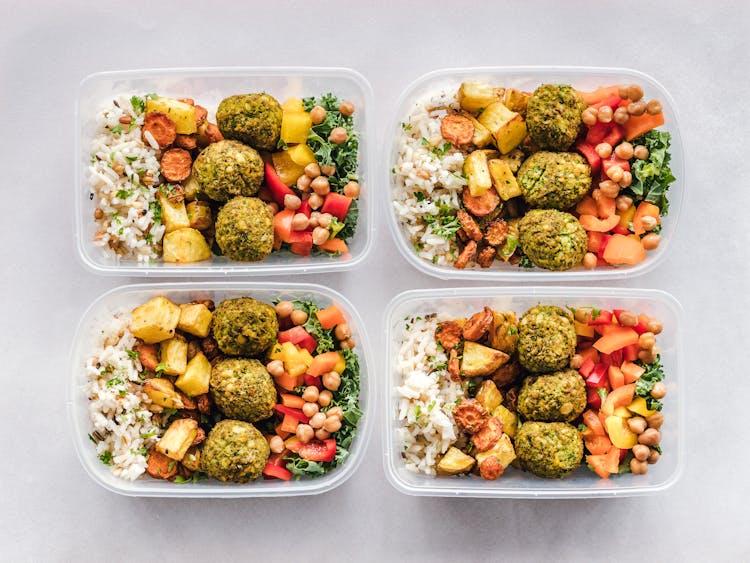Table of Contents
DLR Summary
- 🍽️ Experience the joy of eating through mindful meal planning.
- 🕒 Save time and reduce stress with efficient meal preparation.
- 🥗 Explore healthy recipes tailored to your preferences.
- 📅 Achieve a balanced diet effortlessly.
Meal preparation often sounds daunting, but with the essence of mindful meal planning, it doesn't have to be. Integrating this approach allows you to harmonize your eating habits with a nutritious lifestyle. By being intentional about your selections and respecting your body’s needs, you pave the way for healthier eating patterns that are sustainable. This method doesn't solely focus on what is on your plate; instead, it emphasizes how you connect with your meals physically and emotionally. Living in a fast-paced world where convenience often trumps mindful eating, cultivating a slowness to savor and appreciate your food can feel revolutionary. Transforming routine meal prep into mindful moments preserves your well-being while nourishing your body.
Practical Tips for Efficient Meal Prep
Your week may be chaotic, yet planning your meals doesn’t need to add to the stress. Instead, it can act as a calming anchor amidst the hustle. Start by dedicating time at the beginning of your week for a mindful meal prep session. Consider listing what fuels your body and what satisfies your taste buds. A combination of these factors results in meals that you’ll genuinely enjoy. This planning session encourages the discovery of healthy recipes that fit within your weekly schedule. Abandon the notion of rigid recipes; instead, consider your cravings, the season’s produce, and what you already have stocked. Also, employing techniques like batch cooking and using high-capacity appliances, such as a Dual Air Fryer can significantly reduce your time in the kitchen while allowing variety.
What's vital is not just adherence to a strict meal plan but responsiveness to the messages your body sends about its needs. Notably, keep in mind nutrition shouldn't be a source of anxiety but rather a form of self-care. Create a list of favorite meals and snacks, ensuring your meals are never repetitive unless you desire them to be. This rotation keeps your culinary experience vibrant and enjoyable. It also encourages the exploration of new ingredients and flavors, which can instill joy rather than boredom.
Nurturing Your Taste Buds through Mindfulness
Embracing mindful eating cultivates a profound connection with food. Each bite becomes an opportunity to appreciate flavors, textures, and even the memories tied to meals from the past. Challenge yourself to experiment with new flavors, contrasting textures, and methodologies that excite your palate. Share meals with friends or family, amplifying the eating experience with engaging conversations and laughter.
Consider how the food is prepared, its aroma, and the presentation on your plate. All these factors contribute significantly to your meal enjoyment. By dedicating mindfulness to your meals, you increase the satisfaction factor—realizing that food is not merely sustenance but a source of pleasure and connection. Complement this by checking out resources on Harvard Health for expert knowledge about mindful eating practices.
Maximizing Efficiency in the Kitchen
Every meal planner needs the right tools to facilitate their kitchen endeavors. Opting for multifunctional gadgets, such as the Kitchen Gizmo Snap N' Strain, can save precious time while ensuring that your cooking procedures remain enjoyable. Additionally, keeping your workspace organized with items like a Cord Organizer for Appliance can free you from hassle, allowing you to focus entirely on your culinary creations.
Regularly take stock of your kitchen supplies. By identifying what you routinely use versus what gathers dust, you tailor your cooking environment to fit your needs. This enables effective and quick meal preparations, such as easily accessing your often-used spices or utensils. If you are a fan of effortless clean-up, consider trusty non-stick cookware, ensuring that the enjoyment of cooking not only extends to what you create but also to the process of maintaining your kitchen.
Enjoying the Fruits of Your Labor
Ultimately, remember to take time to bask in the satisfaction of your efforts. At the end of each week, reflect on your meal experiences, considering what worked well and what you might tweak. This reflection enhances both your meal planning skills and your understanding of your body’s responses to different foods. Consider keeping a meal journal, noting feelings of satisfaction or cravings. This method not only fosters a deeper relationship with food but also identifies trends that can guide future meal planning sessions.
What fundamental principles guide mindful meal planning?
How can I make meal preparation less stressful?

Gain deeper insights now
Table of Contents
Latest Posts
Hamilton Creek Companies: Where Quality Garage Doors Meet Customer Satisfaction
Unforgettable Rail Journeys: America's Most Scenic Train Trips
Maximize Your Home's Potential with These Affordable DIY Projects
Navigation
Latest Posts
Hamilton Creek Companies: Where Quality Garage Doors Meet Customer Satisfaction
Unforgettable Rail Journeys: America's Most Scenic Train Trips
Maximize Your Home's Potential with These Affordable DIY Projects